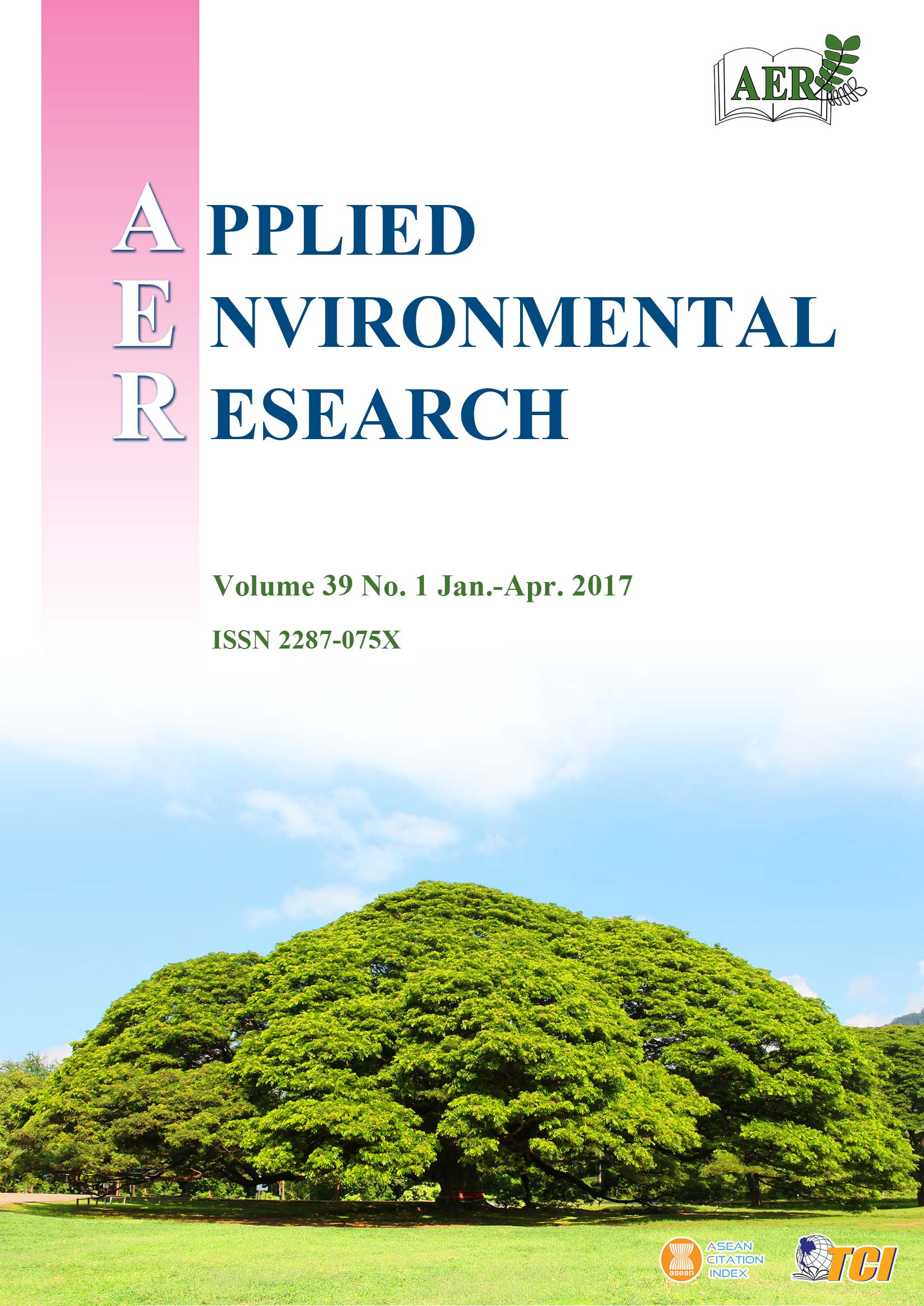Comparison of CO2 Emissions from Vehicles in Thailand
Main Article Content
Abstract
Emission of carbon dioxide (CO2), a greenhouse gas, from typical passenger vehicles in Thailand was investigated using a chassis dynamometer in the Automotive Emission Laboratory. The vehicle running method was controlled under the standard Bangkok driving cycle. CO2 emissions were measured at three different speeds for the following four vehicle types commonly used in Thailand: heavy duty diesel (HDD), light duty diesel (LDD), and light duty gasoline (LDG) vehicles and motorcycles (MC). HDD vehicles had the highest average CO2 emission rate, followed by LDD, LDG and MC at 1,198.8±93.1, 268.4±21.3, 166.1±27.7 and 42.5±6.1 g km-1, respectively; all values were significantly different (p < 0.05) from each other. The effect of different fuel types, including diesel, gasoline 91, gasohol 95, gasohol 91, liquid petroleum gas (LPG) and natural gas for vehicles (NGV), on the CO2 emission level was also compared. HDD vehicles had a higher rate of CO2 emission when using either NGV or diesel, while LDD vehicles emitted more CO2 with diesel than with NGV. For LDG vehicles, more CO2 was emitted with gasohol 91 than with gasohol E20, LPG or NGV. Finally, MC had a higher average CO2 emission rate with gasohol 95 than with gasoline 91 and gasohol 91 at any vehicle speed. The CO2 emission rates obtained in this study can be used as a basis to create a database that supports development of an efficient transportation management system and reduced vehicular emission of greenhouse gases in Thailand.
Article Details

This work is licensed under a Creative Commons Attribution-NonCommercial 4.0 International License.
Published articles are under the copyright of the Applied Environmental Research effective when the article is accepted for publication thus granting Applied Environmental Research all rights for the work so that both parties may be protected from the consequences of unauthorized use. Partially or totally publication of an article elsewhere is possible only after the consent from the editors.

